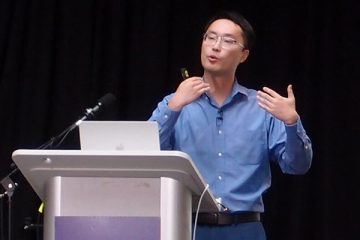Allen School researchers are at the forefront of exciting developments in AI spanning machine learning, computer vision, natural language processing, robotics and more.
We cultivate a deeper understanding of the science and potential impact of rapidly evolving technologies, such as large language models and generative AI, while developing practical tools for their ethical and responsible application in a variety of domains — from biomedical research and disaster response, to autonomous vehicles and urban planning.
Groups & Labs

UW NLP Group
The University of Washington Natural Language Processing Group comprises diverse researchers across campus collaborating in the study of all aspects of NLP from computational, engineering, linguistic, social, statistical, and other perspectives.

Interactive Data Lab
The Interactive Data Lab aims to enhance people’s ability to understand and communicate data through the design of new interactive systems for data visualization and analysis.
Faculty Members
Centers & Initiatives

Computing for the Environment (CS4Env)
Computing for the Environment (CS4Env) at the University of Washington supports novel collaborations across the broad fields of environmental sciences and computer science & engineering. The initiative engages environmental scientists and engineers, computer scientists and engineers, and data scientists in using advanced technologies, methodologies and computing resources to accelerate research that addresses pressing societal challenges related to climate change, pollution, biodiversity and more.

NSF AI ACTION Institute
The NSF AI Institute for Agent-based Cyber Threat Intelligence and Operation (ACTION) seeks to change the way mission-critical systems are protected against sophisticated, ever-changing security threats. In cooperation with (and learning from) security operations experts, intelligent agents will use complex knowledge representation, logic reasoning, and learning to identify flaws, detect attacks, perform attribution, and respond to breaches in a timely and scalable fashion.
Highlights
UW News

In this Q&A, Allen School professor Sheng Wang talks about his work on a new medical AI model, BiomedParse, that works across nine different types of medical images to better predict systemic diseases. Clinicians can load images into the system and ask questions in plain English.
GeekWire

OctoAI, a UW startup that sells tools to help build and run generative AI models more efficiently, has been acquired by chip giant Nvidia. Allen School professor and OctoAI co-founder Luis Ceze joined Nvidia following the deal, which is the latest AI-related acquisition for the chipmaker.
UW News

Allen School postdoc Niloofar Mireshghallah discusses why math and reasoning have so challenged artificial intelligence models and what the public should know about OpenAI’s new release.




